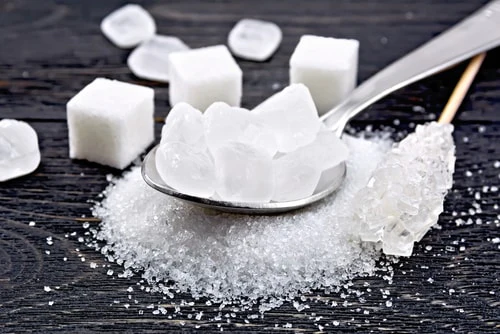We are addicted to sugar, and a number of documentaries and health books over the years have exposed that addiction that many people didn’t even realize they had.
The message of all these books and films is a singular one. It is that sugar is unhealthy for us and it is causing us to become fat and at risk for a number of health problems.
The western world has tripled its sugar consumption since World War II. That drastic increase in sugar consumption has led to epidemic of diabetes and heart disease.
Australia has joined the United States and many other countries in becoming massive sugar consumers. Our sugary drinks are an indelible part of our culture, and they are one of the main contributing factors to sky-high obesity rates. The average weight of the Australian citizen has greatly increased over the past decade. It’s alarming how quickly the average has increased and how much closer Australians are to making diabetes and obesity the norm.
Recommendations from the World Health Organisation, or WHO, are that adults should eat less than eight teaspoons of sugar each day. The average sugar intake, however, is much closer to 40 teaspoons. This is obviously a dangerous excess, and people need to realize how unhealthy their eating and drinking habits are. Only then will they take the corrective action needed to decrease their risk of disease.
It’s children who are most at risk and who are most susceptible to the advertising that promotes sugary foods and drinks. Australian child obesity rates are terrifying, and now about 25% of all Australian children are overweight. Health experts pin that problem squarely on sugary drinks and sugar-filled fast food.
Sugar is now understood to be the biggest culprit in our modern poor health trends. The solution to the problem is to greatly reduce how much sugar we are consuming. With so much advertising aimed at kids and promoting sugary foods and beverages, how can we protect our children from eating too much sugar?
- There are a few ways to decrease your kids’ sugar consumption, and here are a some of our best tips:
- Put a Ban on Sugar– You don’t want to completely eliminate sugar, because you need it to get the energy your body has to have throughout the day, but too much sugar is awful for your blood sugar and it can cause diabetes to develop. You want to instead restrict how much sugar is in your kids’ diets. Try to cut down or eliminate sugar in drinks, slowly but surely, until your taste buds grow accustomed to it. Try to find healthy alternatives for reward foods instead of sugary snacks.
- Sweeten with Alternatives– We can also change what we use to make our drinks and foods sweeter. Try to avoid adding unnatural sweeteners to what you eat. You can use stevia, agave or rice malt syrup as sweeteners. These should be used moderately, but they are all healthier than the alternative. You can also use dates or bananas instead of sugar in your baking.
- Check the Labels– You also want to look closely at any foods you eat, even so-called health foods. Many breakfast cereals are considered healthy by many parents, but they actually contain tons of sugar. As much as 50% of their content could be made up of sugar. You should also watch out for low-fat foods, which often counter their limited fat content with lots of sugar.
- Eat Natural Foods– It’s best to eat the kind of food that your grandparents grew up with. These are foods they made themselves or used natural products to create. The best healthy eating advice we can give you is to try to eat mostly food that only contain a few ingredients. That way, you know what you are getting, and you can control the amount of sugar, additives and sweeteners your body is taking in. You also want to avoid foods that have ingredients you don’t recognize. Many of them are disguised sugars.
Lowering the amount of sugar in our diets is not something that has to be a huge step in a different direction. It often means just making some small changes, many of which are gradual and become larger later on. If you can replace the sugar in your diet with healthy fats, then you can live longer, happier and healthier.
There are a few factors at work in the fight on sugar. Advertising aimed at kids is being targeted, as are school lunches that often contain a lot of sugar in them. Action is being taken to reduce sugar intake for many children, but parents need to do their part as well.
It can be tough to reduce your sugar intake or that of your child when there is so much hidden sugar in the foods you eat and the drinks you consume. You can do it, though, by monitoring your sugar intake, getting rid of high sugar products from your diet and making positive choices. Watching how much sugar you eat and lowering your sugar consumption will have long-term benefits. You will reduce your risk for diabetes and obesity and will be healthier and live longer. Take the steps we listed above to protect your family and yourself.



